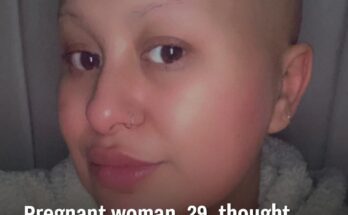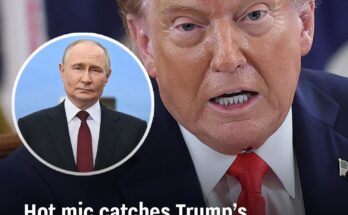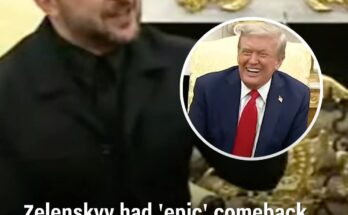A month into Donald Trump’s new administration, Vice President J.D. Vance already carries himself like a seasoned statesman.
In an exclusive interview with the Daily Mail, Vance reveals he had just spoken with his boss.
“The president, while he doesn’t sleep much, is still just one man. He needs people in his administration to execute the agenda he was elected to carry out,” Vance says, reclining on a couch in his West Wing office.

This is where the real work gets done. Unlike his ceremonial office in the Eisenhower Executive Office Building—adorned with chandeliers and rich woodwork—his working office is more understated, but strategically located just steps from the Oval Office. A scarlet US Marine Corps flag hangs behind his desk, a nod to his military service, and a football signed by the Cincinnati Bengals, his favorite team, sits prominently on display.
While Vance exudes confidence, speculation about his political future looms. Trump recently told Fox News host Bret Baier that he wasn’t ready to endorse his vice president for a 2028 presidential bid, stating only, “No, but he’s very capable.” Vance brushes it off.

“I think he said exactly what he should have said—’It’s too early,'” he remarks. “My focus is on the American people’s business, not politics. The time for that will come, especially in the midterms.”
Vance’s Controversial European Tour
Meanwhile, Europe is still reacting to Vance’s recent six-day trip, where he made waves at the Munich Security Conference. His speech, delivered just a day after an Afghan asylum seeker allegedly drove his car into a crowd in southern Germany, was scathing.
Vance challenged European leaders, arguing that the greatest threat to the continent isn’t artificial intelligence, Russia, or China, but “from within”—pointing to lax immigration policies and increasing restrictions on free speech.
The European elite criticized his remarks as “crude,” but Vance stands by them.
“The headlines focused on my critique, but what they ignored was my point that one of the biggest drivers of censorship in recent years was the Biden administration,” he explains. “President Trump and I believe in free speech and open discourse.”
His message was clear: American troops don’t risk their lives for censorship or allies who label immigration restrictions as “far-right extremism.”
“What holds the Western alliance together is American hard power, and we will exercise that power to defend American values,” he asserts.
Family, Politics, and a Tense Meeting in Germany
Vance wasn’t alone on the trip—his wife, Usha, and their three children accompanied him on Air Force Two, even joining a meeting in Paris with Indian Prime Minister Narendra Modi.
“It was perfect. I worked long days but still had breakfast and dinner with my kids most nights,” Vance says, shifting effortlessly from political firebrand to doting father. His son Vivek celebrated his fifth birthday in Paris with three cakes—one from the U.S. embassy and two from French President Emmanuel Macron.
However, Vance’s most controversial moment came at the end of his trip. While his meetings with European leaders were open to the press, one was not: his conversation with Alice Weidel, co-leader of Germany’s far-right Alternative for Germany (AfD) party, just a week before the country’s general election.
German conservatives later accused Washington of election interference, especially as the AfD surged to a historic 20.8% of the vote. But Vance insists his discussions centered on free speech, not election meddling.
“People can debate whether Europe should be more or less supportive of Ukraine’s war effort. But labeling one viewpoint as mere ‘Russian propaganda’ is absurd,” he says.
He also met with Ukrainian President Volodymyr Zelensky in Munich, urging a swift end to the war. Zelensky, however, criticized Trump’s stance, calling it influenced by Russian disinformation.
Vance finds that strategy ill-advised. “Anyone who knows President Trump will tell you: badmouthing him in the media is the worst way to deal with this administration.”
Trump, in his characteristic style, fired back, labeling Zelensky “a dictator” on social media.
At just 40 years old, with only two years of Washington experience, Vance has already proven himself a formidable player on the global stage. His European tour showcased both hardline politics and soft power, balancing tough speeches with family moments and symbolic gestures like a visit to Notre Dame Cathedral.
Even as Trump’s second term unfolds, one thing is clear: Vance has positioned himself as a future heavyweight. And inside the White House, even a termed-out president surely sees it.


